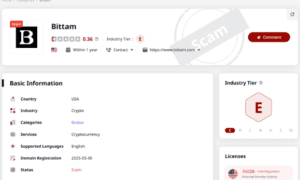Let’s face it – if you’re new to investing and have been Googling common phrases such as “new investor guide” or “how to start investing”, it’s almost a guarantee that the Motley Fool has come up in your searches. It is a well known investment advice service, having been in operation since 1993. In that time it has grown dramatically and is now on many investors’ radars for their stock picking and investment advice service.
Although Motley Fool has no doubt shown up in your search, there is no shortage of other options to get guidance and advice as you begin the daunting and very important task of managing your own money. The stock market has historically been one of the best vehicles for growing wealth, so it’s important that you are getting the right insight off the bat in order to maximize your chances of success.
Before getting into specific stock picking services, new investors should spend some time learning about the basics of investing. Understanding historic return patterns, how compounding works, and what some of the basic technical terms are will give you an important foundation that’ll help you be better prepared to look at stock picking services. There are quite a few good online guides to help get you started.
But here’s the thing: the Internet is great, but investing pre-dates it. By a lot. So if you’re really serious about getting a solid grounding, consider going old school and reading a book.
Stock Advisor vs. Rule Breakers
Up front, it’s important to understand that Motley Fool actually has multiple offerings. When you’re signing up, you’ll want to decide between Motley Fool Stock Advisor vs Rule Breakers. Stock Advisor is the more conservative advice service, making recommendations from better known companies with a longer track record. Rule Breakers, well, breaks the rules a little, and suggests newer companies with higher growth potential. That also comes with higher risk.
If you try either service, you’ll get the same basics – 12 stock picks a year, for an average of one per month. The fact is that Rule Breakers has stronger returns historically, but that’s only true as an average of all their picks. If you have the funds available to purchase every single Rule Breakers pick, you’ll likely do better than with Stock Advisor.
Where the risk for a new investor is if you decide to start picking and choosing individual stocks, because while Rule Breakers has bigger winners it also has bigger losers. Perhaps you’ll pick well, and only select big winners – if that’s the case you will see outsized gains and a very strong start to your investing career. However, if it goes the other way and you pick more losers than winners, you could find yourself in a deep and discouraging hole at a critical time in your development as an investor. If you are considering the more aggressive Rule Breakers option, it would be smart to look at in more depth before taking the plunge.
The Big Question: Is It Right For You?
Is a Motley Fool subscription the right approach for new investors? That depends on a few things, including your financial acumen and tolerance for risk. The reality is that you’ll need to be prepared to commit a good chunk of cash to get full exposure to either Motley Fool service’s picks, and there is some risk to picking individual stocks and hoping they’ll mostly be winners.
Here’s one thing to be certain of: their stock picks, and their overall approach to investing, require a buy-and-hold strategy. It won’t be the right starting point if you’re determined to become a day trader or have visions of frequently flipping stocks. These are higher risk strategies better suited to more experienced investors.
That said, if Motley Fool’s stock picking services are something you have the stomach for as a new investor, the more conservative Stock Advisor offering could set you on the right track. You would be hard to go wrong with special introductory pricing of $79/year.
Here’s a final word of wisdom for the new investor. Yes, it’s true that stocks are probably the most accessible asset, with the lowest barrier to entry. It’s understandable why they appeal so strongly to new investors, and why services like the Motley Fool that aim to simplify your research for you hold such appeal. But there’s a whole big world out there, and diversifying the asset classes you own is very important. For example, another area that has historically produced reliable returns is real estate. You may be thinking the upfront capital needed is far too much for the new investor, but there are actually ways to begin to access real estate with much smaller amounts of money than you are probably thinking.
Regardless of the path you choose, we wish you nothing but the best of luck and success!



































